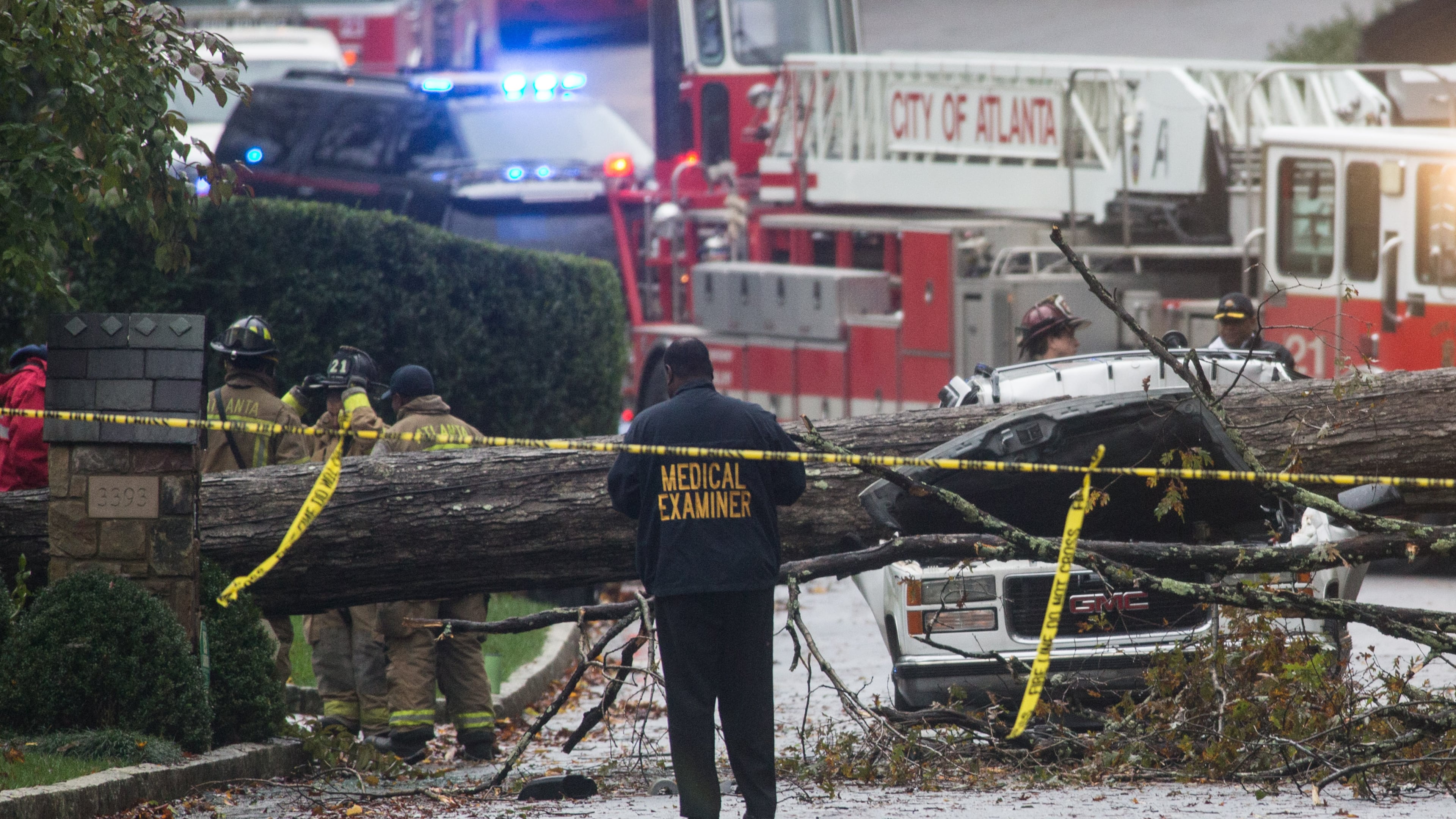Soggy conditions lead to problems for area trees

TREE TIPS
» If you'd like to have your trees assessed, make sure you contact a certified arborist. You can search for tree experts online at www.georgiaarborist.org.
» If you need to hire a company to remove a tree, find one that has full liability and workman’s compensation, if possible. This will protect you if an employee is injured while removing the tree.
» Depending on where you live, you may need a permit before cutting down trees, even on your property.
» More answers to common questions can be found on the Georgia Forestry Commission's website, www.gfc.state.ga.us.
With two-thirds of the month still to come, Atlanta has already recorded nearly 7 inches of rain so far this month — almost double the 4.10 inches that normally fall in a full November.
And while the rain is expected to go away for Tuesday and Wednesday, it returns to Thursday’s forecast.
All this rain has been bad news for metro Atlanta’s canopy of trees, some of which have been falling with increased frequency.
In Buckhead, an 81-year-old driver died Monday when his sport utility vehicle slammed into one of those fallen trees during the predawn darkness, and other fallen trees blocked numerous roads across metro counties.
“The situation is that when the soils become saturated, the roots have a hard time holding on to them,” Joe Burgess, Georgia Forestry Commission senior forester told The Atlanta Journal-Constitution last spring, when trees were toppling because of similarly soggy ground. “The important thing to remember is that you really need to take a look at your trees, or have someone else do it, and determine if they are structurally sound. Look at the root system, because the root system is really a critical point of failure.”
During periods of drought, including some of the most recent dry spells between 2007 and 2009, metro trees suffered and were weakened. Some metro trees are still trying to recover, according to experts.
But during particularly wet spells such as the past two weeks, trees are dealing with the opposite situation. Highly saturated soil has made trees weaker, more likely to topple, Burgess said.

